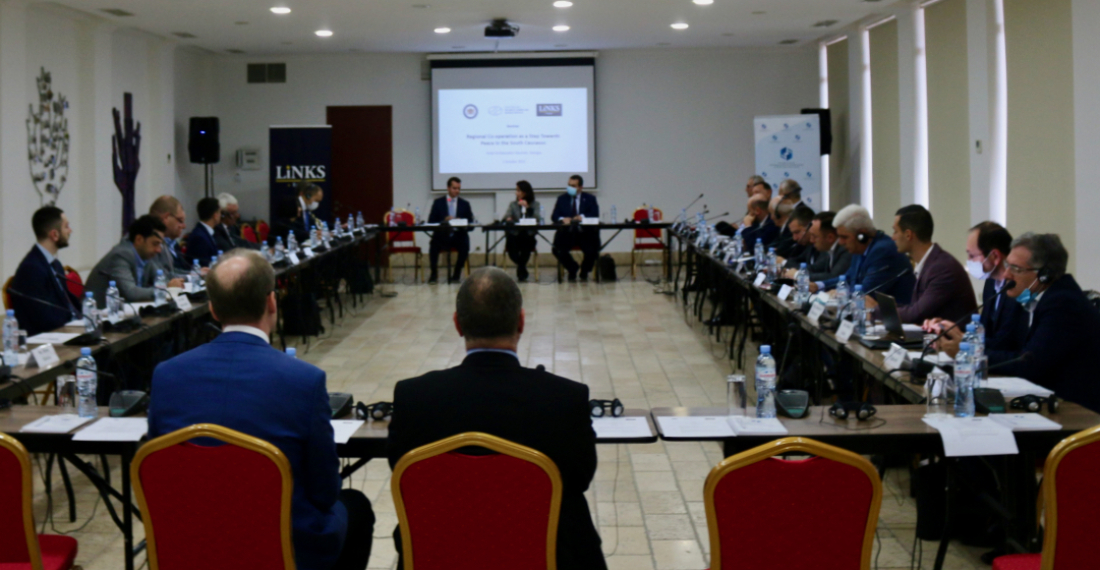A regional seminar with the theme “Regional Co-operation as a step towards peace in the South Caucasus” was held in Kachreti in Eastern Georgia on Friday 1 October 2021.
Experts and officials from Georgia, Armenia and Azerbaijan attended the event which was hosted by LINKS Europe and the Levan Mikeladze Diplomatic Training and Research Institute of the Georgian Foreign Ministry.
The seminar was addressed by the First Deputy Foreign Minister of Georgia, Lasha Darsalia, and the Secretary-General of the Inter-governmental Commission, TRACECA, Asset Assavbayev.
Other speakers included Narek Adamyan (Deputy Director, Public Relations and Information Centre, Office of the Prime Minister of Armenia ); Gulshan Pashayeva, (Board Member, Center of Analysis of International Relations of Azerbaijan); Ambassador Mikheil Ukleba, (Research Fellow at the L. Mikeladze Diplomatic Training and Research Institute), Georgia.
Participants heard speakers on two panels dealing with the themes: “Overcoming obstacles for regional co-operation” and “Exploiting the region’s connectivity potential: It is time to think ambitiously”. The presentations were followed by an intensive question and answer session.
Joining the seminar were also experts, academics and opinion-shapers from Armenia and Azerbaijan who on Thursday participated in a workshop on the importance of confidence-building measures in support of lasting peace in the South Caucasus.
Read more here







